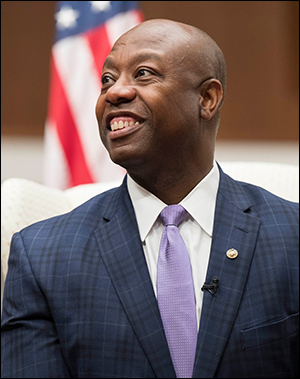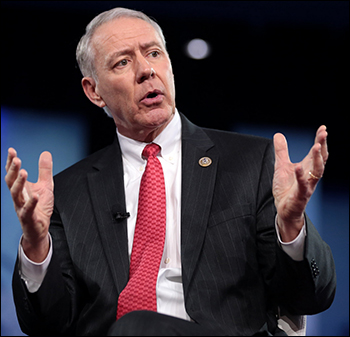By Jim Ellis — Thursday, April 25, 2024
House

Rep. Donald Payne Jr. / Fox News Photo
Since candidate filing is closed for the regular cycle and Rep. Payne is the only candidate on the ballot for the 10th District Democratic primary, he will posthumously win the nomination contest. According to a story in the New Jersey Globe newspaper, once all candidates are certified for the general election by the June 17 deadline after the June 4 primary election, the New Jersey secretary of state will declare the seat vacant. The various Democratic county party committee members would then meet in convention to choose a replacement nominee.
Gov. Phil Murphy (D) has leeway regarding calling a special election for purposes of filling the remainder of the current term. He can schedule a special primary and general within the time limits proscribed by New Jersey election law, or he can make the special general concurrent with the regular election. The 10th District is heavily Democratic, so the party’s new nomination process will decide who succeeds the late Congressman Payne.
CO-8: Rep. Caraveo (D) Drops Behind in New GE Poll — Despite trailing in fundraising by a better than 5:1 margin, an early April OnMessage survey in Colorado’s 8th Congressional District (April 1-4; 400 likely CO-8 voters; live interview) projects state Rep. Gabe Evans (R-Westminster) to have secured a 43-38 percent ballot test advantage over freshman Rep. Yadira Caraveo (D-Thornton). This, in a district the FiveThirtyEight data organization rates as R+3. The Dave’s Redistricting App statisticians, however, calculate a different 48.3D – 47.0R partisan lean. In 2020, President Joe Biden carried the district 50.8 – 46.3 percent.
The 8th CD was created through 2020 national reapportionment since Colorado gained a seat and was drawn as a suburban/outer-suburban district to the north and northeast of Denver. This race will be rated as a toss-up campaign all the way through the November election.
NY-1: Ex-Rep. Santos Drops New Bid — Earlier this week, expelled US Rep. George Santos (R) announced that he is dropping his Independent bid in the state’s 1st District, attempting to deny Rep. Nick LaLota (R-Suffolk County) re-election. In his statement, Santos said, “I don’t want to split the ticket and be responsible for handing the House to the Dems. Staying in this race all but guarantees a victory for the Dems.” Santos may be overestimating his ability to draw votes as an Independent or minor party candidate.
Rep. LaLota, in a post on X, said he believes Santos ending his candidacy means he is negotiating a plea bargain to the 23 federal charges he soon faces in trial. In closing, Santos indicated that, “it’s only goodbye for now, I’ll be back.” Rep. LaLota, in a district that the new redistricting plan made slightly more Republican, is favored for re-election.
President
Quinnipiac Poll: Trump Draws Into a National Tie — Quinnipiac University conducts monthly national political polls, and their April survey reports a much different conclusion than the four previous studies had produced. The most recent poll (April 18-22; 1,429 US registered voters; live interview) finds President Biden and former President Donald Trump tied at 46 percent in the head-to-head delineation, and 37-37 percent when Independent Robert F. Kennedy Jr. (16 percent) is added along with Green Party nominee Jill Stein (three percent), and Independent Cornel West (three percent).
This poll reveals a significant movement in Trump’s favor when compared with the four previous polls beginning in December that yielded President Biden leads of one, six, four, and three percentage points.







